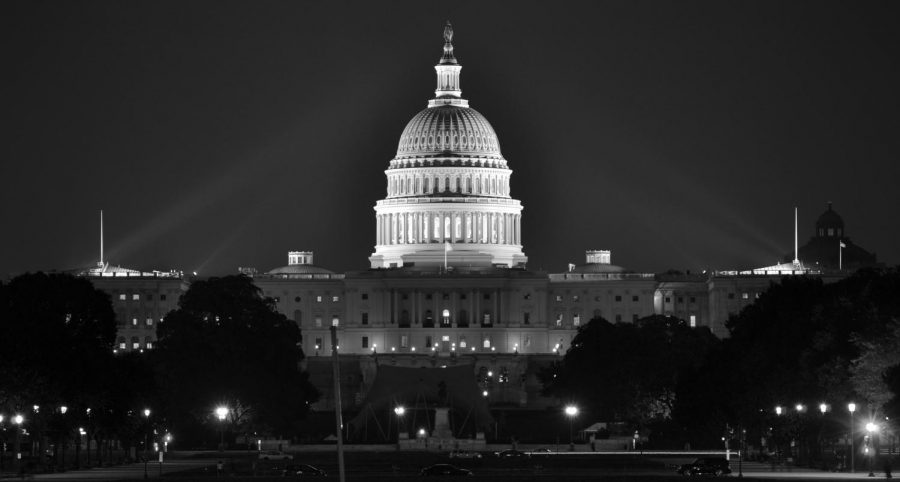Do Not Break the Debt Ceiling
By Dane Salmon
The U.S. government is once again on track to hit the debt ceiling, the fairly arbitrary limit put on federal borrowing by Congress. They rarely abide by it and wield it more as a political weapon than as a tool for responsible federal credit.
The debt ceiling was established in 1939 as the Second World War was on the horizon, and it was peacefully and consistently raised as the Federal Government continued to spend more than it received in tax revenue.
This trend continued with bipartisan support until 1953, when Congress attempted to stop President Eisenhower’s federal highway initiative over budget concerns, though the initiative ultimately passed.
The issue was raised again in the 1960s over concerns about the federal expenditure required for President Johnson’s Great Society program, the Vietnam War and, most recently in 2011, during a spat between Republican-controlled Congress and President Obama over federal expenditure.
Last year, Congress voted to suspend the debt ceiling entirely instead of raising it, but that suspension ran out this month, fixing the federal debt at its current level — about $22 trillion dollars.
This number is a record high, of course, as the debt has not decreased since the Coolidge administration.
Congress will either raise the debt ceiling or suspend it entirely again, as both sides of the aisle have grown used to the safety of relying on money they do not have. The national debt is a pressing issue that everyone loves to ignore, politician or not, but it has a real effect on the average person’s life.
As the federal deficit increases, so does the interest on it, which leads to potential tax hikes and higher interest rates. While higher interest rates do incentivize saving, the increase in private spending would hardly offset the massive amount of federal borrowing — a trend that has proven true.
While national debt does stimulate growth in the short term, the trend is unsustainable and destructive in the long term.
Building a high national credit rating is very important — we do that by taking on and paying off debt. Our national credit rating is still in the highest category, but we have hardly made any progress towards paying off the national debt — as I said, the national debt has not decreased for 90 years.
The national debt stood at 104.15 percent of GDP in the third quarter of 2018, a reduction of about 1 percent from the first quarter of 2018, but it has likely only increased since then. Nevertheless, we owe more money than we produce in a year as a nation.
Now, the question of who owns the national debt is also very important. The debt is classified into two sections: public debt and intragovernmental debt.
The largest creditor in this category is the Social Security Administration, which is owed roughly $2.8 trillion by the Department of the Treasury.
Public debt, the remaining 72 percent of the national debt, is owed to banks, the Federal Reserve, mutual funds, state and local governments, private individuals, and foreign governments.
The largest creditor of this category is foreign governments, which make up 30 percent of public debt. China, of course, is the largest foreign creditor, owning $1.8 trillion in national debt. The second largest is Japan, which owns $1.03 trillion of the national debt.
The Federal Reserve is owed $2.46 trillion, mutual funds own $1.8 trillion and the rest of the public creditors of various shape and size are owed the remaining $5 trillion.
Immense debt to foreign countries is a dangerous game. It may be used to manipulate currency, artificially decreasing the price of goods imported to the United States, or to cripple the American economy when it is called in and the government’s coffers are empty.
America simply must reduce government spending to manageable levels and begin to pay off the national debt for the betterment of all Americans.
Dane Salmon, FCRH ’21, is an economics and philosophy major from Coppell, Texas.








































































































































































































